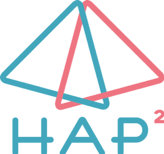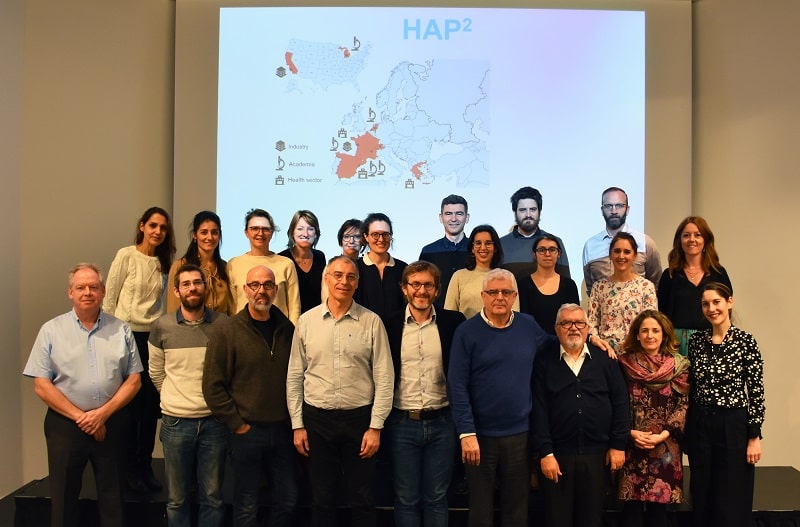HAP² Project




“HAP2” (Host-targeted Approaches for the Prevention and the treatment of Hospital-Acquired Pneumonia), coordinated by Pr Antoine Roquilly, aims to develop stratified host-directed drugs and biomarkers to enhance the prevention and the treatment of hospital-acquired pneumonia (HAP) and develop precision medicine in infectious diseases.
HAP is an infectious disease of major concern in the world, and the most frequent cause of hospital-acquired infections with 500,000 episodes being treated every year in Europe.
Despite the development of European recommendations, the incidence remains high, with dramatic medical consequences: existing therapies and preventive measures do not result in the expected favorable outcome (clinical cure and survival) for 30% of patients. HAPs are moreover the main cause of antibiotic consumption in European hospitals and are increasingly induced by drug-resistant pathogens. New, alternative and more effective host-targeted strategies are therefore urgently needed to fight antibiotic resistance.
The ambition of “HAP2” is to revolutionize the management of HAP: capitalizing on the novel concept of critical-illness related immunosuppression altering the host-pathogens interactions, we propose a complete reappraisal of the physiopathology of HAP based on the concept of respiratory dysbiosis.
“The HAP2” project will reach two ground-breaking objectives in the field of bacterial infections :
- first the development of host-targeted approaches for the prevention and the treatment of a severe bacterial infection through the supplementation of the IL-12/IFN-γ axis which is defective in patients at risk of pneumonia ;
- second the development of a clinico-biological score based on an integrative assessment of the host-pathogen interactions and genetic variation, to predict the course of HAP and the response to treatment.
Our interdisciplinary consortium, bringing together 10 partners from academia and industry with expertise in clinical trials, immunology, microbiome analysis, omics and social sciences is uniquely placed to achieve this ambition within this 5-year project.
The HAP² project is funded under the European Research and Innovation Program Horizon 2020 (H2020).

